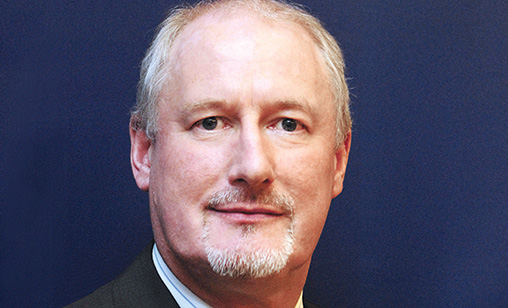News Backgrounder
Governments neglecting responsibilities to airline passengers
Unruly passenger incidents, a serious problem for airlines, are rising sharply, accelerating industry demands for governments to adopt global standards to punish inflight offenders.
February 1st 2017
The world’s airlines want nations to adopt a tougher global punishment protocol to curtail a rise in unruly passenger incidents. Read More »
The International Air Transport Association (IATA) said from 2007 to 2015 there was one reported air rage incident for every 1,683 flights, or 49,084 incidents over the seven-year period.
 |
| In the last 12 months, 40% of airlines had to divert a flight because a passenger was disruptive, said IATA’s Paul Steele |
But in 2015 unruly onboard incidents ballooned to one in every 1,205 flights with 11,000 reports made for the 12 months.
IATA’s senior vice president for members and external relations, Paul Steele, said none of the incidents should be considered trivial “because any incident that could potentially endanger the safety of an aircraft is something you have to take seriously”.
Steele said 53% of IATA members surveyed said unruly passengers had increased in the last five years. In the last 12 months, 40% of airlines had to divert a flight because a passenger was disruptive. Unruly passengers are one of the top three safety issues of concern for cabin crew, IATA said.
A majority of the incidents are classified as Level 1, which typically involved passengers either being verbally aggressive or failing to follow crew instructions. Usually cabin crew can de-escalate these situations.
Another 11% of cases are Level 2, where passengers are physically aggressive with crew or passengers and/or are damaging the aircraft. Twenty three per cent of reported cases are passengers who are drunk or affected by drugs. Most of these passengers either are intoxicated before they board their flights or they drink onboard from their own supply without the knowledge of the crew.
“There is a trend in society where people think ‘I need to satisfy my own needs immediately and do what I want to do now’,” said Steele. “But this is happening in a safety-controlled environment. Maybe, as airlines, we need to do a better job in explaining why these rules exist. They are there to protect passengers. Passengers need to observe these rules otherwise they endanger themselves and others.”
Worldwide, nations vary widely in their approach to disruptive passengers. In some countries, legal jurisdiction needs to clarified so police can remove offending passengers after an aircraft lands and charge them for their alleged offences. New Zealand has a much better approach. Airport police can issue on-the-spot fines to unruly passengers. “Having a deterrent like that will reduce the number of cases,’’ Steele said. “We want penalties available to governments, law enforcement agencies and airlines to deter this kind of behavior.”
IATA has been campaigning for all countries to ratify the Montreal Protocol 2014 (MP14). It would close the jurisdictional gaps that exist between nations when dealing with unruly passengers.
Twenty two countries must ratify the treaty to bring it into force, but only eight have done so. Thirty others have signed up but they have not ratified the treaty. Many other countries, including China, India and Singapore, are undertaking the legislative process required for signing up.
“Our members have told us that in 60% of cases, the reason unruly passengers are not prosecuted is because of lack of jurisdiction. It happens when an aircraft is flying from one country to another, but the unruly incident occurred in airspace above a third country,” said Steele.
“MP14 will clarify what constitutes an offence and will reinforce the right of airlines to seek recovery of the significant costs they incur from unruly passengers under international law.”
IATA also wants to educate airport operators and restaurant, bar and duty free operators about preventing unlawful passenger behavior in flight. “In the UK we’ve seen excellent local programs that have reduced unruly passenger incidents. They include Monarch Airlines’ targeting of pre-flight binge drinking at London Gatwick airport in 2014. It reduced disruptive incidents on flights to Ibiza by 50%,” Steele said.